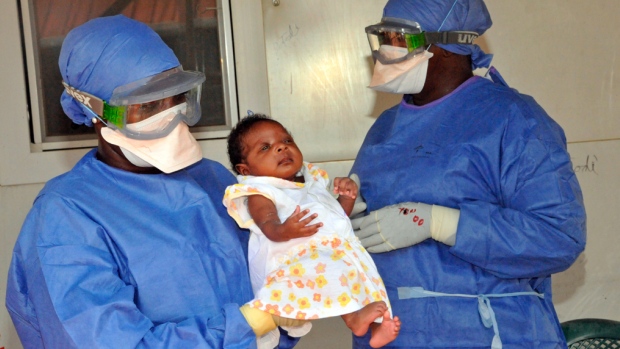-
Tips for becoming a good boxer - November 6, 2020
-
7 expert tips for making your hens night a memorable one - November 6, 2020
-
5 reasons to host your Christmas party on a cruise boat - November 6, 2020
-
What to do when you’re charged with a crime - November 6, 2020
-
Should you get one or multiple dogs? Here’s all you need to know - November 3, 2020
-
A Guide: How to Build Your Very Own Magic Mirror - February 14, 2019
-
Our Top Inspirational Baseball Stars - November 24, 2018
-
Five Tech Tools That Will Help You Turn Your Blog into a Business - November 24, 2018
-
How to Indulge on Vacation without Expanding Your Waist - November 9, 2018
-
5 Strategies for Businesses to Appeal to Today’s Increasingly Mobile-Crazed Customers - November 9, 2018
World Health Organisation declares Guinea Ebola free
The World Health Organisation (WHO) yesterday officially decalred Guinea to be free of the deadly Ebola virus, bringing to a close almost two years of trauma. “Let us commit to be with them too”, said Dr. Mohamed Ag Ayoya, UNICEF’s Representative in Guinea. Liberia has been declared free of the virus twice, but is about midway through a third 42-day countdown following a recent cluster of cases.
Advertisement
The virus killed over 2,500 people in Guinea alone since the outbreak began in 2014 and has left around 6,200 children orphaned.
Hundreds of health workers who treated Ebola sufferers were themselves infected and died due to a lack of training and equipment to deal with a disease not previously seen in that part of West Africa.
West Africa experienced several highs and lows in 2015 in its fight against Ebola. Liberia was declared “Ebola-free” in September, and a 15-year-old died of the disease on November 23.
In March, a reinforcement team from MSF with viral haemorrhagic fever specialists arrived in Gueckedou and started an exploratory intervention, supporting the health ministry in collecting samples for analysis and setting up the first Ebola management centre (EMC) in the country.
Researchers now believe that the first human case in the latest outbreak was an 18-month boy who developed the disease in December 2013 in the remote village of Meliandou, Guinea, near where the borders of the three countries meet.
“We have to be very careful because, even if open transmission has been stopped, the disease has not been totally defeated”, said Alpha Seny Souhmah, a Guinean health technician and Ebola survivor.
But experts warn that cases may still emerge. Although the cases were reported in 10 countries, the outbreak mainly affected Guinea, Liberia and Sierra Leone.
What researchers have declared the worst outbreak of Ebola began in eastern Guinea and quickly spread to neighboring Sierra Leone and Liberia, claiming over 11,000 lives in the process. “But the most important for me, what I want to say to Guineans, is to always keep in mind the security measures put in place for health in order to protect ourselves”. “This situation has shown us how much we must fight for those who are survivors”. Now, the country has entered into a three-month long period of sharp surveillance.
Advertisement
According to World Health Organization, another 8,764 people were killed by Ebola in those two countries during the outbreak, which was accompanied by a worldwide epidemic of fear and anxiety. On the contrary, the epidemic’s up-and-down history illustrates the importance of maintaining an aggressive response to Ebola. They have called for continued vigilance against any new outbreak stemming from the virus’s lingering in male semen.





























